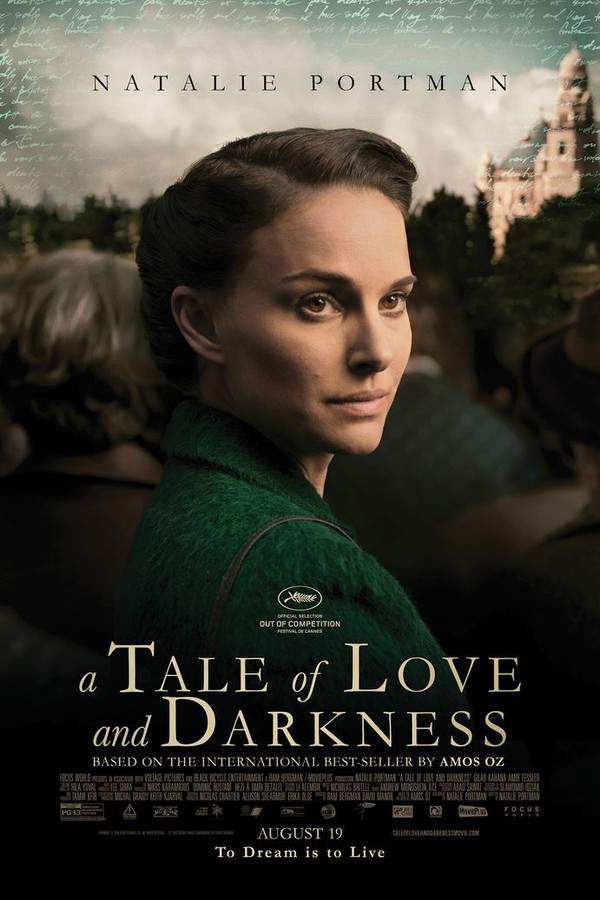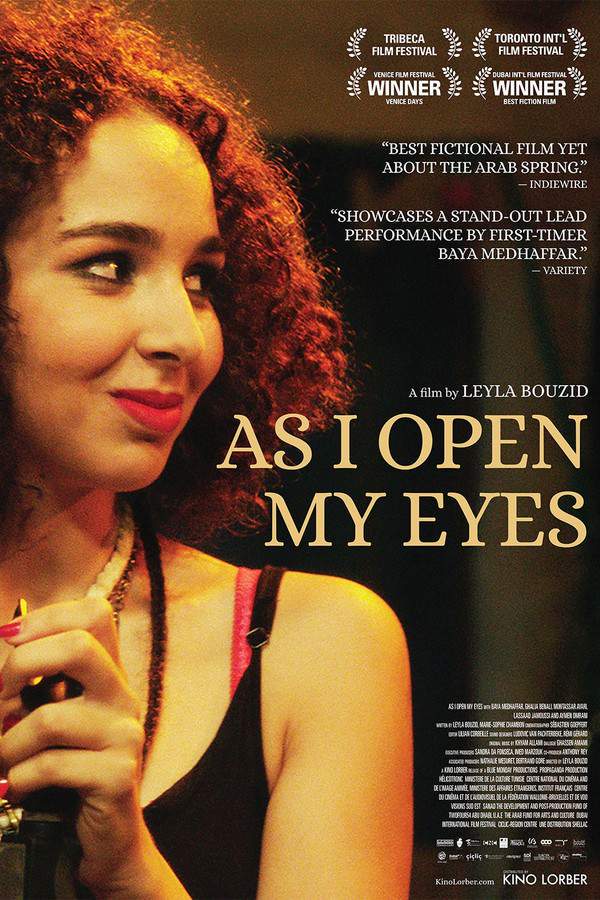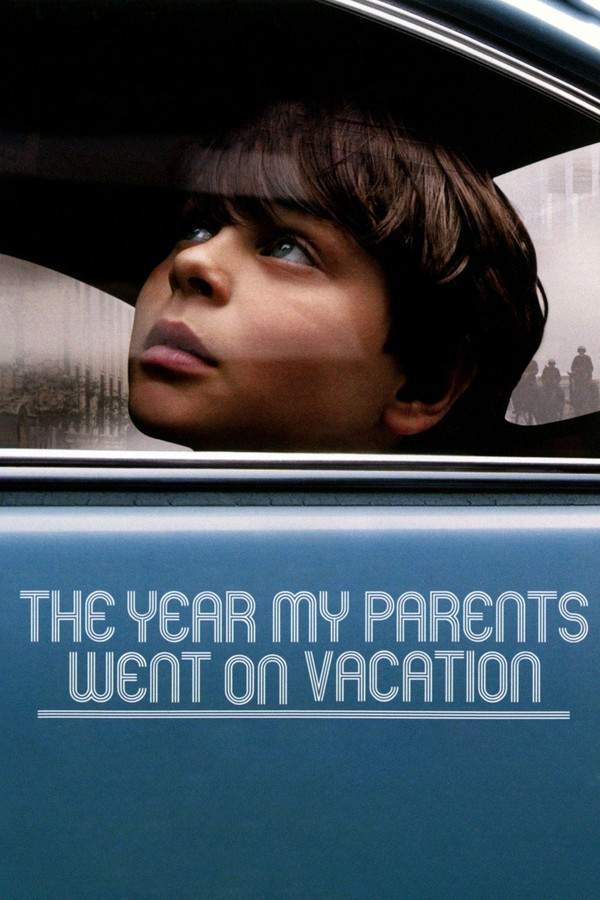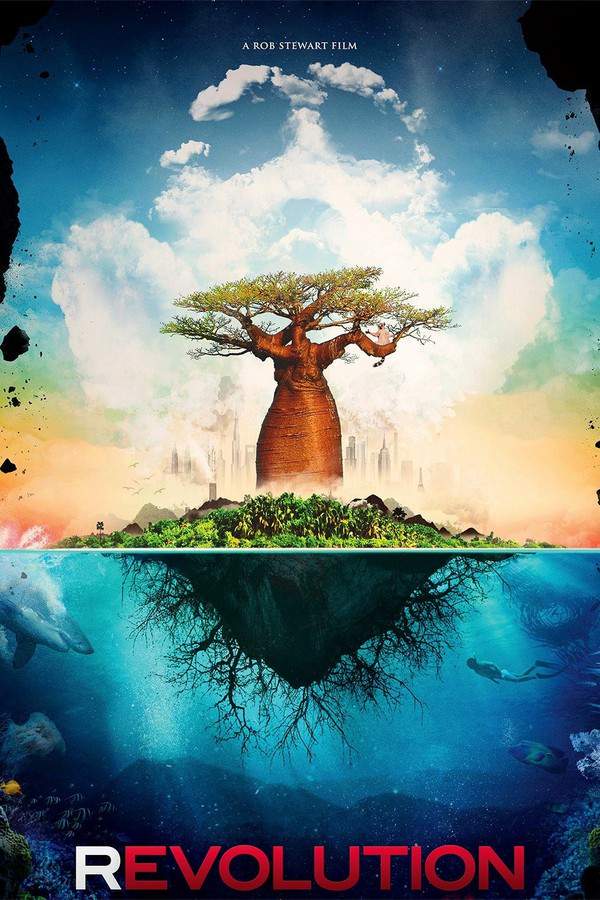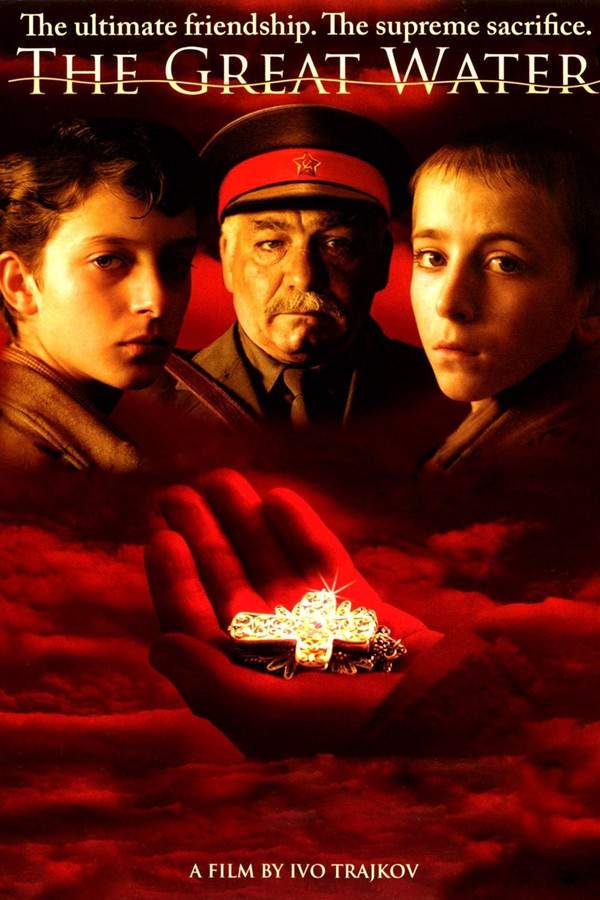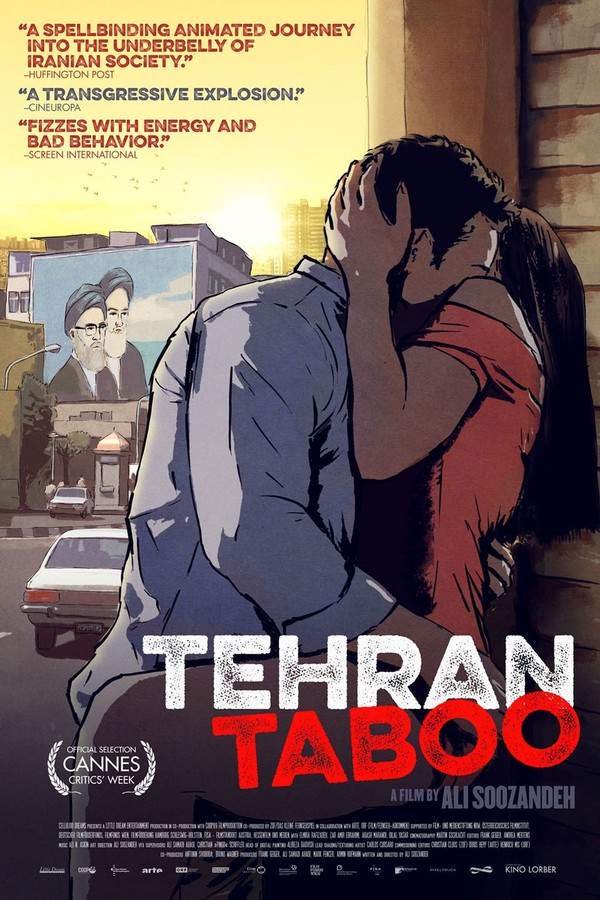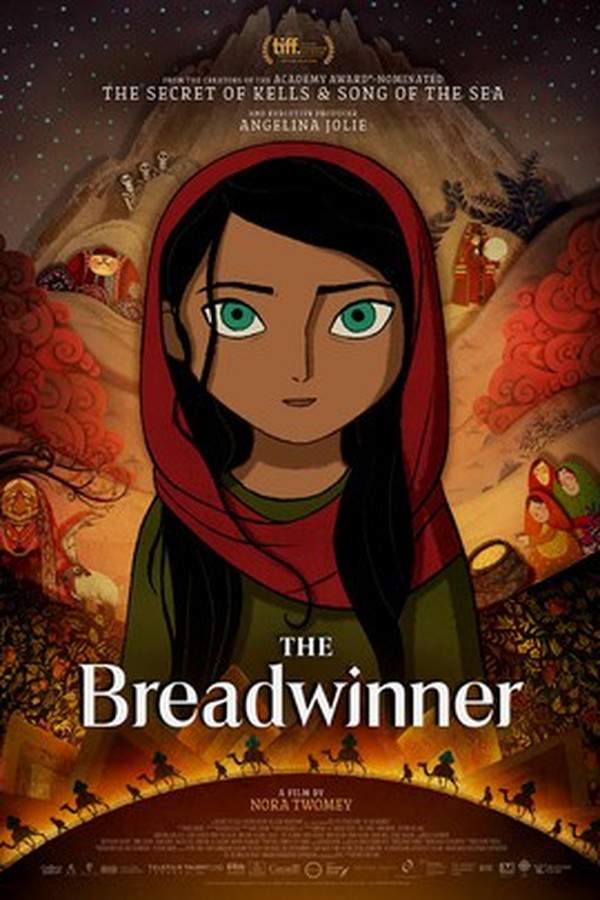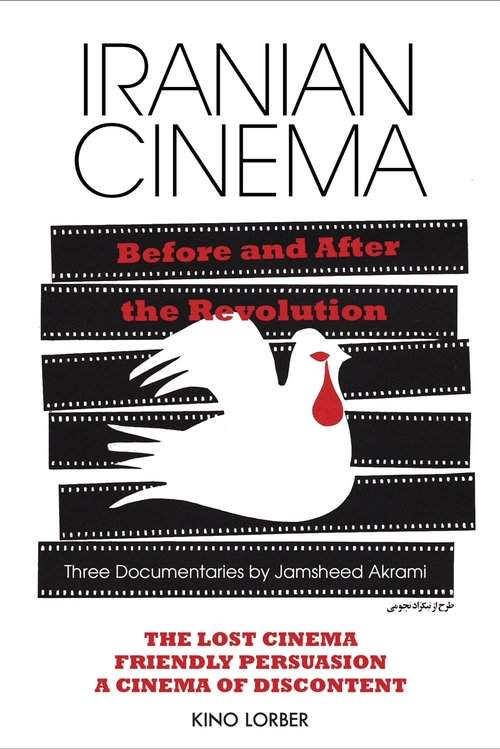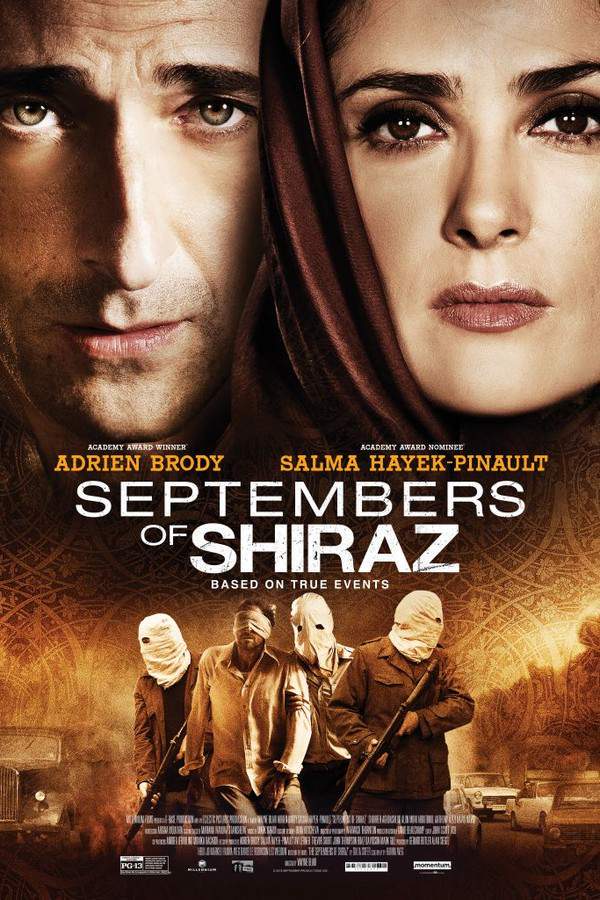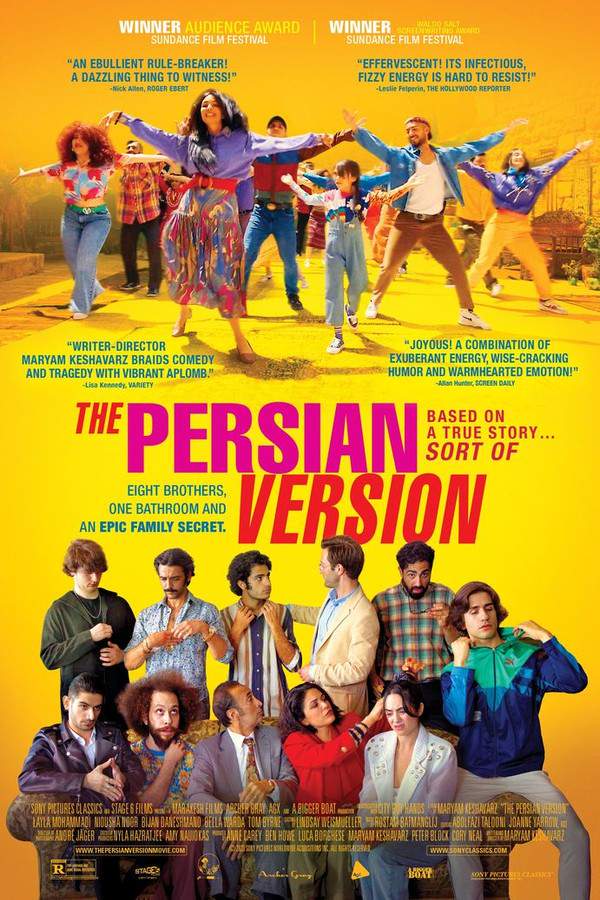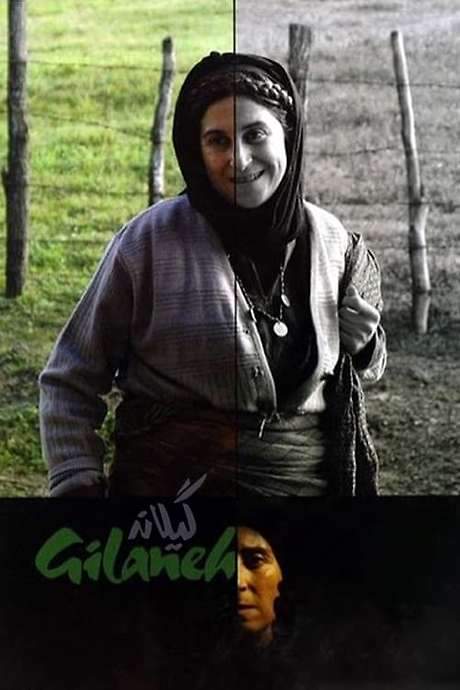
Persepolis
Year: 2007
Runtime: 96 min
Language: English
Directors: Marjane Satrapi, Vincent Paronnaud
During Iran’s Islamic Revolution, a young girl named Marjane experiences firsthand the dramatic upheaval reshaping her country. As a spirited 9-year-old, she challenges the increasingly strict religious regime and embraces Western culture, finding solace in punk rock. Growing up amidst political turmoil and war, she witnesses the harsh realities of a society struggling for freedom, forcing her to confront difficult choices and the loss of innocence.
Warning: spoilers below!
Haven’t seen Persepolis yet? This summary contains major spoilers. Bookmark the page, watch the movie, and come back for the full breakdown. If you're ready, scroll on and relive the story!
Persepolis (2007) – Full Plot Summary & Ending Explained
Read the complete plot breakdown of Persepolis (2007), including all key story events, major twists, and the ending explained in detail. Discover what really happened—and what it all means.
The film kicks off at an airport where Marjane Satrapi finds herself unable to board her flight back to Iran. As she sits to smoke a cigarette, she reflects on her childhood memories from 1978 when she was just nine years old. Back then, Marji fantasized about becoming a prophet and emulating Bruce Lee. Simultaneously, her innocent dreams unfold against the backdrop of a fierce uprising against the US-supported Shah of Iran, with her middle-class family actively participating in protests, fueled by aspirations for a better society.
Throughout this tumultuous period, Marji struggles to connect with her peers’ perspectives, whether it involves confronting the child of a despised government official or vying for the prestige of having a family member who has been a political prisoner the longest. In a moment of youthful rebellion, Marji and her friends plot to confront a boy whose father is known for executing Communists without remorse, but just in time, her mother intervenes. That night, God manifests to Marji, imparting lessons on forgiveness and cautioning her against seeking justice through her own actions.
One significant evening, Uncle Anoush, newly released from prison, visits for dinner and shares tales of his evasion from government forces due to his Communist beliefs. His experiences serve as a subtle warning for Marji about the consequences of standing against oppression. As political strife ends and new elections take place, hope quickly fades when Islamic Fundamentalists assume control, enforcing a repressive regime that further crushes Iranian society. Laws become increasingly harsh, enforcing modest dress for women— including the mandatory hijab— and leading to Anoush’s re-arrest and execution due to his political views.
Disheartened, Marji turns away from her ambitions of prophecy as she and her family adapt to the realities of a regime that is intolerant and oppressive. The outbreak of the Iran-Iraq war brings devastating realities, forcing Marji to confront the brutalities of death and destruction. She witnesses her father being menaced by armed teenage officials and experiences the agonizing loss of her uncle, denied essential medical care due to a corrupt government system. As a way to cope, the family seeks solace in secretive gatherings to enjoy simple joys, like alcohol, that the government has outlawed.
As she matures, Marji’s defiance grows; she secretly acquires Western heavy metal albums from the black market, dons non-conformist outfits like denim jackets, and unflinchingly challenges a teacher’s fabrications about government abuses. Fearing for her safety due to her outspoken nature, her parents send her to a boarding school in Vienna, Austria, in 1983 for better prospects. However, upon her arrival, Marji finds herself on edge with the judgmental nuns and feels deeply alienated in a foreign environment, surrounded by people who take their freedoms for granted and make her self-conscious about her Iranian identity.
Her feelings of shame intensify when a passionate romance with a charming local man ends tragically on her eighteenth birthday when she catches him unfaithful. Following a series of unfortunate events, Marji finds herself without a home, nearly succumbing to bronchitis before being rescued. Eventually regaining her health, she returns to Iran in 1993, hoping for an improved life as the war concludes. Regrettably, she soon becomes engulfed in despair over Iran’s deteriorating state and her family’s plight.
In a poignant dream, both God and Karl Marx’s spirit appear to her, reminding her of her values and motivating her to embrace life once more. Revitalized, she enrolls in university, attends parties, and kindles a romantic relationship with a fellow student. Yet, alongside her renewed spirit, realities of systemic oppression become more apparent; heinous acts against political dissidents and absurdities of religious laws plague daily life. Determined, Marji challenges gender biases and voices her frustrations against the system, including confrontation with police officers who reprimand her for simply running to class.
To navigate the harsh reality, she employs survival strategies, like falsely accusing a man of harassment to evade being arrested for wearing makeup, or hastily marrying her boyfriend to escape scrutiny by the religious police. A staunch reminder from her grandmother about her grandfather’s and uncle’s sacrifices for freedom instills within Marji the significance of not abandoning her beliefs or family, even amidst oppression.
However, her marriage crumbles, culminating in a tragic incident where a police raid during a party leads to a friend’s death while attempting to escape. Following these harrowing events and her subsequent divorce, her family decides that to ensure her safety from government persecution, Marji must leave Iran once more—this time for good. She acquiesces, and shortly after, her grandmother passes away.
In the present day, Marji is once again unable to re-enter Iran. As she takes a taxi from the airport, the driver inquires about her origins. With a heavy sigh, she responds, “Iran.” Her final reminiscence is of her grandmother, who used to tell her how she would tuck jasmine into her brassiere, allowing her to carry a lovely scent every day.
Last Updated: November 16, 2024 at 14:34
Explore Movie Threads
Discover curated groups of movies connected by mood, themes, and story style. Browse collections built around emotion, atmosphere, and narrative focus to easily find films that match what you feel like watching right now.
Animated memoirs of turmoil like Persepolis
Personal life stories told through animation amidst historical upheaval.Find movies like Persepolis that blend animation with biography. These films use the medium to explore personal histories set against political revolutions, wars, and cultural shifts, offering poignant and visually distinct stories of resilience and identity.
Narrative Summary
Stories in this thread typically follow a linear or reflective biographical arc, charting a character's growth and identity formation within a specific, often turbulent, historical context. The narrative is driven by the intersection of the personal and the political, showing how world events directly impact individual lives, choices, and sense of self.
Why These Movies?
Movies are grouped here for their shared foundation in real-life experiences, their use of animation as a narrative tool for memoir, and their central focus on the profound impact of political and social upheaval on an individual's journey.
Coming of age stories during revolution like Persepolis
Young protagonists forging identity amidst societal collapse and rebirth.If you liked Persepolis, explore other movies about young people growing up during revolutions. These films focus on the clash between personal freedom and political oppression, depicting the bittersweet process of finding one's voice in a world turned upside down.
Narrative Summary
The narrative pattern follows a young character's adolescence and early adulthood, using their evolving perspective to document the revolution's impact. The journey is marked by traumatic events, ideological conflict with authority figures, and the difficult choice between conformity and rebellion, often leading to exile or a fractured sense of home.
Why These Movies?
These films share a core focus on the specific experience of coming of age when societal structures are collapsing. They blend heavy political themes with the intimate emotional journey of youth, creating a powerful sense of melancholy, defiance, and resilience.
Unlock the Full Story of Persepolis
Don't stop at just watching — explore Persepolis in full detail. From the complete plot summary and scene-by-scene timeline to character breakdowns, thematic analysis, and a deep dive into the ending — every page helps you truly understand what Persepolis is all about. Plus, discover what's next after the movie.
Persepolis Timeline
Track the full timeline of Persepolis with every major event arranged chronologically. Perfect for decoding non-linear storytelling, flashbacks, or parallel narratives with a clear scene-by-scene breakdown.

Characters, Settings & Themes in Persepolis
Discover the characters, locations, and core themes that shape Persepolis. Get insights into symbolic elements, setting significance, and deeper narrative meaning — ideal for thematic analysis and movie breakdowns.

Persepolis Spoiler-Free Summary
Get a quick, spoiler-free overview of Persepolis that covers the main plot points and key details without revealing any major twists or spoilers. Perfect for those who want to know what to expect before diving in.

More About Persepolis
Visit What's After the Movie to explore more about Persepolis: box office results, cast and crew info, production details, post-credit scenes, and external links — all in one place for movie fans and researchers.

Similar Movies to Persepolis
Discover movies like Persepolis that share similar genres, themes, and storytelling elements. Whether you’re drawn to the atmosphere, character arcs, or plot structure, these curated recommendations will help you explore more films you’ll love.
Explore More About Movie Persepolis
Persepolis (2007) Scene-by-Scene Movie Timeline
Persepolis (2007) Movie Characters, Themes & Settings
Persepolis (2007) Spoiler-Free Summary & Key Flow
Movies Like Persepolis – Similar Titles You’ll Enjoy
Tehran Taboo (2018) Film Overview & Timeline
The Breadwinner (2017) Detailed Story Recap
The Day I Became a Woman (2001) Full Summary & Key Details
Daughters of the Sun (2004) Plot Summary & Ending Explained
Friendly Persuasion: Iranian Cinema After the 1979 Revolution (2001) Detailed Story Recap
Septembers of Shiraz (2016) Film Overview & Timeline
The Persian Version (2023) Plot Summary & Ending Explained
Son-Mother (2019) Full Summary & Key Details
Soraya (2003) Detailed Story Recap
Iran: A Cinematographic Revolution (2006) Spoiler-Packed Plot Recap
Gilaneh (2005) Plot Summary & Ending Explained
The Pleasure of Love in Iran (1976) Film Overview & Timeline
Reading Lolita in Tehran (2024) Film Overview & Timeline
The Sealed Soil (1977) Movie Recap & Themes
My Tehran for Sale (2009) Movie Recap & Themes







